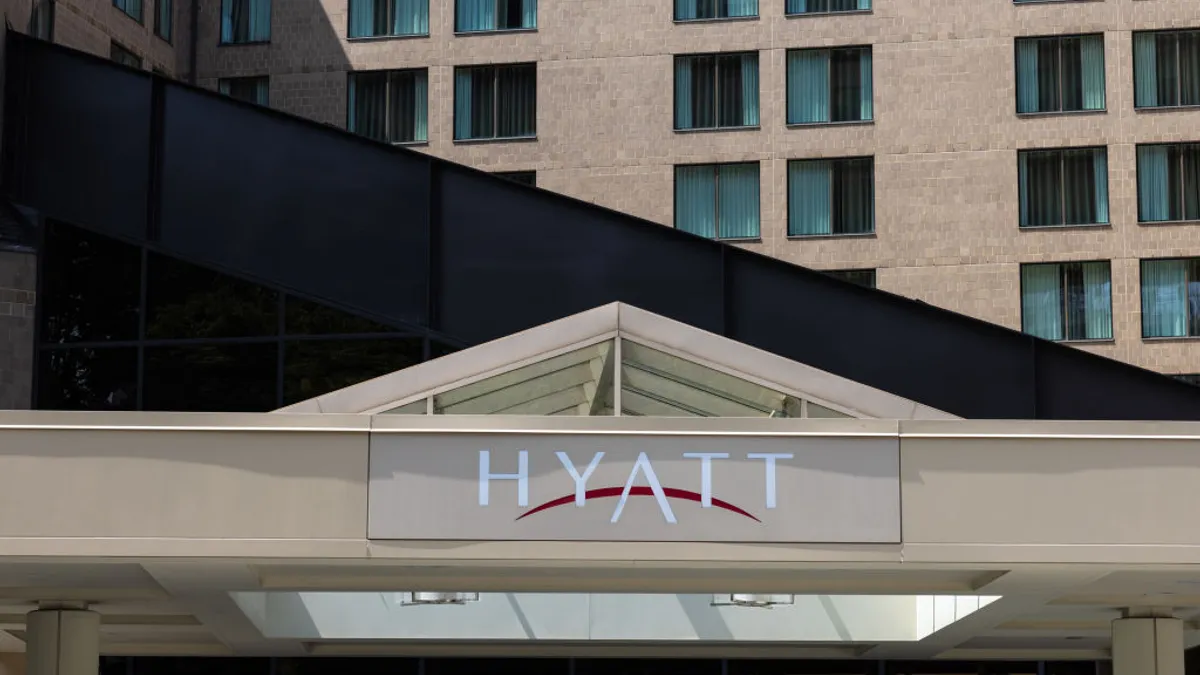Last week, Marriott International terminated its long-term licensing agreement with Sonder, “due to Sonder’s default.” A day later, Sonder initiated a Chapter 7 liquidation of its U.S. business.
The news took the industry by surprise, even considering Sonder’s troubled history and past financial discrepancies. The hospitality industry was particularly moved by the speed at which Sonder’s collapse unfolded, leaving many of its properties unattended and guests stranded.
In the days following, Sonder Interim Chief Executive Officer Janice Sears said in a release that the company’s falter was a result of unanticipated delays and costs of its integration with Marriott. The pair’s agreement, inked last year, added thousands of Sonder rooms to Marriott’s pipeline and portfolio.
A Marriott spokesperson, however, told Hotel Dive last week that Marriott did not agree with the characterizations expressed in Sonder’s press release.
In a motion filed with the U.S. Bankruptcy Court for the District of Delaware on Nov. 14, Marriott outlined what led to the termination, divulging Sonder’s ploy to “leverage guest safety as a bargaining chip” and revealing Sonder’s outstanding multimillion-dollar debt to the company. Hotel Dive reviewed the filing to understand more about the failed partnership.
The lead-up
Leading up to its eventual collapse, Sonder underwent months of financial turmoil, Marriott detailed in the filing.
Among other things, Sonder “collected tens of millions of dollars in advance payments for reservations it now admits it will never honor, spent weeks on a failed restructuring without any contingency plan, and failed to reserve sufficient liquidity to support an orderly wind-down,” according to the filing.
As of Nov. 7, Sonder’s “liquidity situation was so dire that [it] effectively had little to no cash,” Marriott claimed in the filing. Once realizing the immency of its free-fall liquidation, Sonder notified Marriott it was likely to abruptly terminate operations over the weekend of Nov. 8-9, including laying off all its employees and shutting down critical systems at its properties across three continents.
In the filing, Marriott asserts that Sonder attempted to use guest safety as a negotiating tool, “threatening that, unless Marriott financed its wind-down, it would shut down hotel systems and leave thousands of guests locked out of their rooms mid-stay, without regard to whether those rooms contained medication, passports, personal effects, or other essentials,” the filing said.
Sonder initially requested Marriott pay $28 million to fund its wind-down costs, which Marriott declined, according to the filing. Sonder then sent a revised proposal for $14.3 million in funding, which Marriott again dismissed.
Marriott “had no choice but to terminate the agreement to facilitate communication with Sonder’s guests, whose safety, security, and welfare would be impacted by Sonder’s sudden liquidation,” the company claimed in the filing.
On Nov. 7, Marriott terminated its agreement with Sonder and thereafter “immediately activated Emergency Measures” to “assist thousands of guests currently staying at Sonder’s properties in relocating their stays, and to address reservations held by guests with future plans to stay at Sonder’s properties,” per the filing.
It wasn’t until Nov. 9 that Marriott made its first public announcement of the termination. In a statement that day, the company said its “immediate priority is supporting guests currently staying at Sonder properties and those with upcoming reservations … to address their reservation and booking needs.”
The aftermath
In the immediate aftermath of Sonder’s collapse, guests worldwide were left stranded.
Sonder operated more than 9,000 rooms globally, 7,700 of which were part of Marriott’s system as of Sept. 30, a Marriott spokesperson told Hotel Dive last week.
As of June, guests were able to book those Sonder-managed properties both through Marriott channels, including Marriott.com and Marriott’s mobile application, as well as third-party online travel agencies, such as Expedia and Booking.com, according to the filing.
However, even for bookings made directly on Marriott channels, no guest payments were made to Marriott, the hotel company details in the filing.
Rather, payments were delivered directly to Sonder, and Sonder was to pay Marriott a monthly royalty fee plus a fixed percentage of its gross bookings revenue and other fees, per the filing. Marriott claimed in the filing that Sonder owes the hotel company roughly $17.7 million.
Sonder has otherwise “failed to engage Marriott in addressing customer needs” following its wind-down, according to the filing.
Marriott declined a Wednesday Hotel Dive request for comment on the ongoing situation. Sonder could not be reached for comment.

















